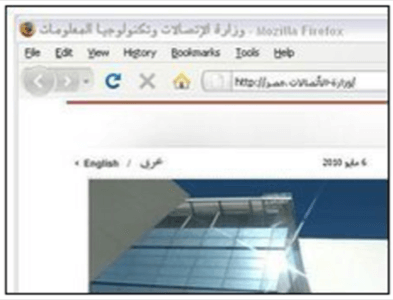Starting today, countries can use Internet country code top-level domains that are independent of the Latin alphabet, according to Internet regulating body ICANN.

As it currently stands, a site in Saudi Arabia must use “.sa” as its root. Now it can use the Arabic equivalent and leave off translating. Egypt, United Arab Emirates and Saudi Arabia are the first to take advantage of this.
The first site to use a completely non-Latin URL is Egypt’s Ministry of Communication.

Now, however, 21 countries have made the request that the Internet recognize their names in 11 different languages, according to an ICANN announcement.
The process to get native-language functionality, called “Fast Track” has three steps.
1. Preparation (by the requester in the country / territory). Community consensus is built for which IDN ccTLD to apply for, how it is run, and which organization will be running it, along with preparing and gathering all the required supporting documentation.
2. String Evaluation: incoming requests to ICANN in accordance with the criteria described above: the technical and linguistic requirements for the IDN ccTLD string(s). Applications are received through an online system available together with additional material supporting the process at: http://www.icann.org/en/topics/idn/fast-track/
3. String Delegation: requests successfully meeting string evaluation criteria are eligible to apply for delegation following the same ICANN IANA process as is used for ASCII based ccTLDs. String delegation requests are submitted to IANA root zone management.

















